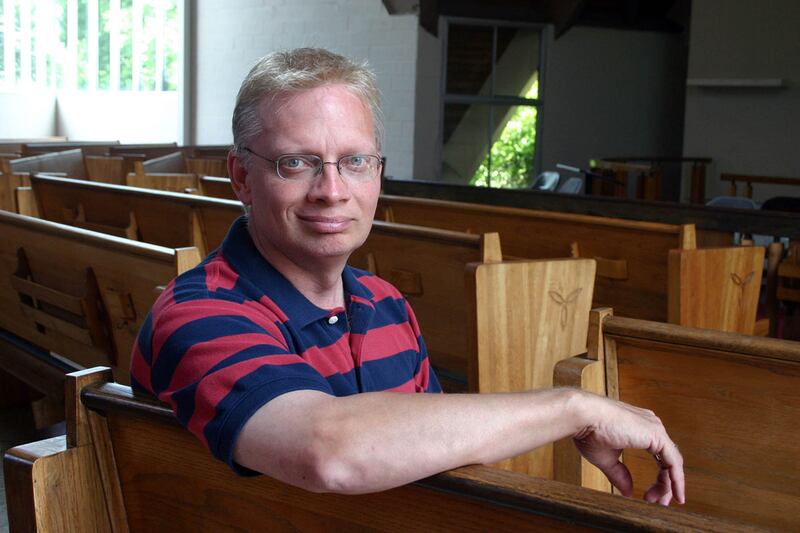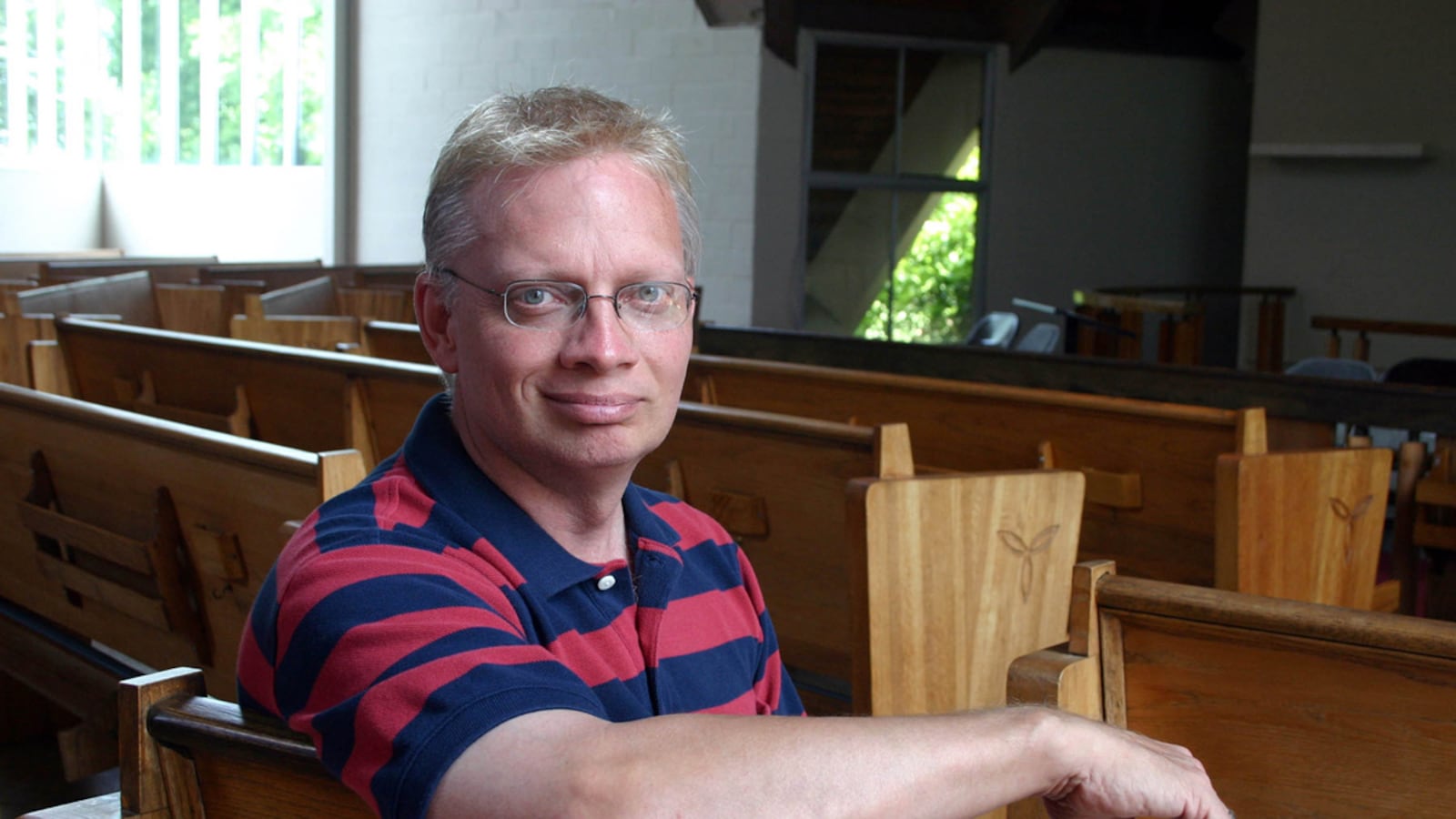Last week, John Smid, the former director of Love in Action, the country’s oldest and largest ex-gay ministry, acknowledged on his blog that, contrary to the claims of the movement he represented for decades, gay people cannot become straight. “I’ve never met a man who experienced a change from homosexual to heterosexual,” he wrote. He himself certainly has not. “I would consider myself homosexual and yet in a marriage with a woman,” he explained. He loves his wife and has no plans to leave her, but wrote, “this doesn’t change the fact that I am who I am and she is who she is.”
Smid, who resigned from Love in Action in 2008, was just the latest ex-gay luminary to leave the movement, either voluntarily or in a cloud of scandal. His break with ex-gay orthodoxy is a sign that, even in the evangelical world, the notion that sexual orientation can be altered is increasingly crumbling in the face of reality. Evangelicals used to insist that “change is possible,” says Warren Throckmorton, a Grove City College psychology professor once associated with the ex-gay movement. “The new paradigm, I believe, is no, it doesn’t look like that works, and so you go with it, you accept it, and you try to make the best life you can in congruence with the rest of your beliefs,” he says.
Though he didn’t realize it at the time, Smid’s journey away from the ex-gay movement began in 2005. That’s when 16-year-old Zach Stark posted on MySpace that his parents were forcing him into Love In Action’s boot camp-style residential rehab program in Memphis, setting off a nationwide uproar. The program cut people off from their old lives—the rulebook forbid “reading/watching/listening to secular media of any kind,” and even keeping a private journal was verboten. Time spent in the bathroom was monitored to prevent masturbation. Hoping to reach Stark in his isolation, protesters stood outside throughout much of the teenager’s eight-week stay.
One of them, Morgan Jon Fox, eventually made a documentary about the confrontation, This Is What Love in Action Looks Like. Smid agreed to let Fox interview him, and their meeting had a deep, lasting impact.
“When Morgan and I met for the very first time right after the protest, what I saw in Morgan was a man of such character,” Smid told me. “I saw someone who was humble, who was open to being honest, someone that I really felt drawn to. It just opened me up to realize I had not been willing to admit that there were gay people like Morgan.”

An odd sort of friendship developed between them, which deepened when Smid, spurred in part by internal bureaucratic conflicts, left Love In Action. “I have been meeting with him for years, since everything began when the protests started,” says Fox. “Over the last year or so I’ve heard him open up more and more on a personal level.” Privately, Smid began to talk about the failures of the ex-gay movement, “but he still was not ready to make those statements on a more public level,” says Fox. “So the fact that he is now making those statements known on a public level is a huge leap.”
Part of that leap was spurred by watching Fox’s documentary, which Smid found painful but also revelatory. “It was very hard for me to watch, but as I thought about it and reviewed it, I recognized there were truths in it that I just had to face,” he says. This May, he traveled with Fox to the movie’s premiere at San Francisco’s LGBT film festival. “I felt an obligation to stand in front of the audience in San Francisco at the first premiere,” Smid says. “I needed to stand in front of that community and say, I recognize this film, I recognize what it says, and I’m sorry for the message that it conveys.” Or, more precisely, for the message he conveyed in it.
He also published an apology on his website, inviting those who’ve been through Love in Action to contact him. “If you have been wounded by me or harmed through the hands of my leadership; please come to me and allow an opportunity for me to personally apologize with the hope that we can both be released from the bondage of unforgiveness,” he wrote.
Still, some who feel victimized by his organization say that Smid’s apology hasn’t gone far enough. “I don’t think he yet understands quite the damage and the harm he has done,” says Peterson Toscano, who spent two years in Smid’s program as an adult and later created a one-man show about it, “Doin’ Time In The Homo No Mo’ Halfway House.” “It was a very destructive process mentally, emotionally, spiritually, sexually—all across the board.” Toscano describes an incident when Smid, responding to a young man of 19 or 20 who wanted to leave the program, staged a mock funeral. The would-be defector had to lie still on a table while the other participants “talked about how terrible it was that he didn’t stick with God, and now look where he is, he’s dead because he left,” says Toscano.
To be sure, Smid regrets the way Love In Action hammered away at “demonic homosexuality,” he says. “I think that was really, for kids that are 15, 16, 17 years old, oh my goodness. With all the things they’re already struggling with, I can’t imagine what that might have been like for them.” At the same time, he still believes that some people, even those forced into his program against their will, benefited from it. “I think there was some positive things about them being there,” he says. “I think we did a good job of listening to them, of hearing their hearts. There was some validation from the staff and from me while they were there.”
Smid has left his new position on gay relationships “intentionally ambiguous,” he says. “Commonly when a homosexual finds God’s amazing love for them as they are, their perversion diminishes, their promiscuity decreases or goes away completely, and at times they accept being single or they may find a God-centered relationship that also seems to be healthy and faithful,” he writes on his website. He told me that “God can absolutely work” within a monogamous gay relationship, which stops somewhat short of an endorsement.
Brandon Tidwell, who went through Love in Action’s residential program in 2002, is suspicious of Smid’s apologies in part because of this lack of clarity about what he now believes. “I don’t think he’s really addressing the business that he ran,” Tidwell says. “He used people’s fears in order to generate revenue for programs that had no validity, no licensure, not accountability and didn’t work.” After leaving, Tidwell says he spent five years in therapy to “unwind” all the beliefs Love in Action inculcated in him.
“I’ve sent John an email and asked him to never reach out to me,” he says. “It’s not due to a lack of forgiveness. I just don’t really want to open that part of my life up again, and deal with his issues on my time.”
These days, Smid, 57, supports himself through a housecleaning business that he runs with his wife, and he’s launched a new ministry, Grace Rivers, which runs a weekly fellowship meeting for gay Christians. This weekend is gay pride in Memphis, and Smid will be at the parade along with a group of Christians involved in something called the “I’m Sorry” campaign. Founded by a Chicago missionary named Andrew Marin, participants go to gay events to seek forgiveness for the church’s history of homophobia, wearing T-shirts that say, “I’m Sorry. Love Is an Orientation.”
Smid is still praying over what to write on his sign. “It’s not necessarily the generic church saying I’m sorry, it’s deeper than that,” he says. “I’m trying to figure out how to say something on a small poster.”






